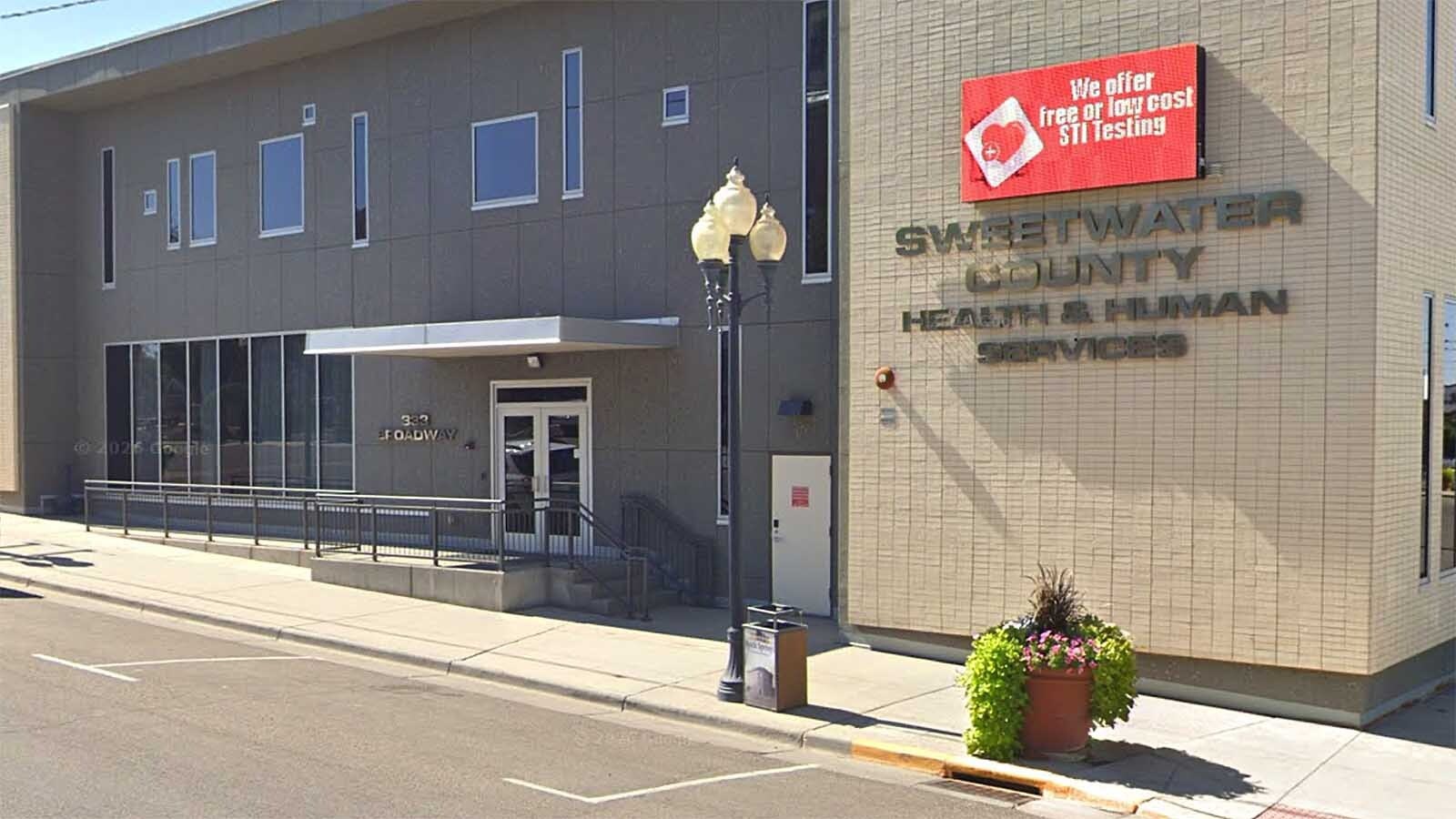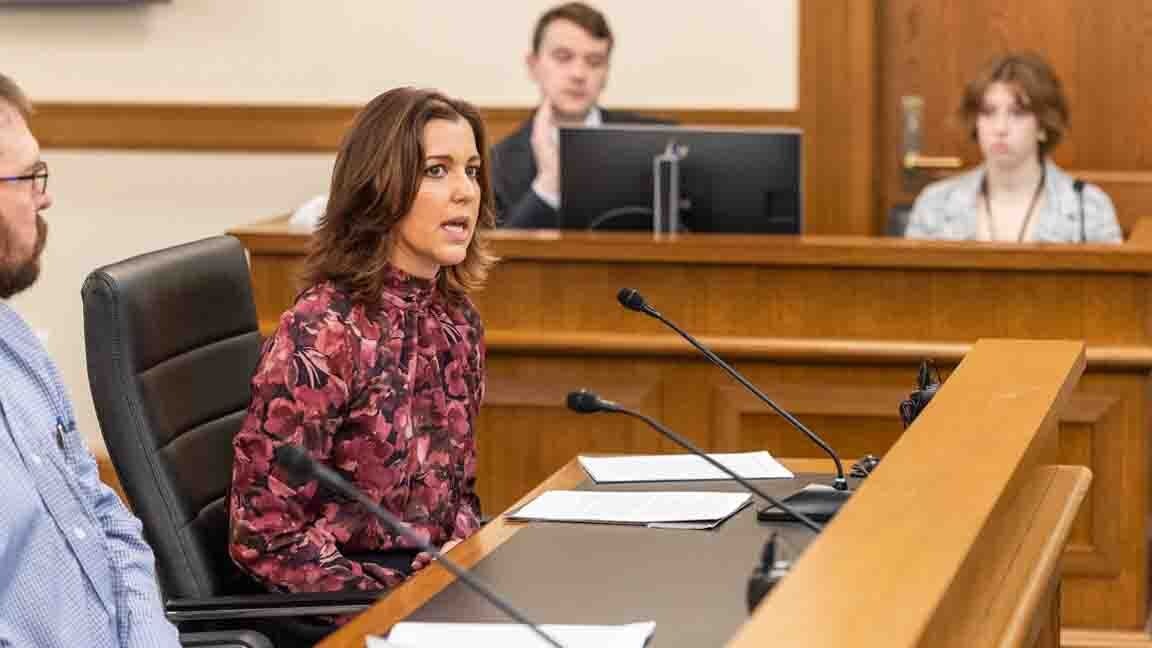Universal school choice funded by public money got one step closer to reality in Wyoming on Wednesday — barely.
The Senate Education Committee advanced House Bill 199 on a 3-2 vote, which would create universal school vouchers in Wyoming, giving parents $7,000 per child to seek private education if they choose.
Sens. Jared Olsen, R-Cheyenne, Evie Brennan, R-Cheyenne, and Charles Scott, R-Casper, voted in support of the bill while Sens. Wendy Schuler, R-Evanston, and Chris Rothfuss, D-Laramie, voted against it.
The bill sponsor, Rep. Ocean Andrew, R-Laramie, described HB 199 on Wednesday as an “update” to thestate’s current education savings accounts (ESA) program, but it’s much more than that.
HB 199 would eliminate the income stipulations required to participate in the current ESA program and offer $7,000 per child to access private schooling. The current program only provides money for families with a household income below 150% of the federal poverty guidelines.
Andrew said those requirements created “a violent eligibility cliff” for parents who may have exceeded the income cap to receive assistance.
HB 199 would also remove pre-K funding from the ESA program.
Despite voting against the bill, Schuler said she’s open to school choice as long as it’s done right, but she has some concerns about providing it in a universal capacity. She prefers a tiered approach that’s income based.
“I think this bill has the potential to do some good things,” she said.
Olsen, a firm supporter of school choice, pointed out that one of his children attends charter school, while the other doesn’t, which he sees as emblematic of the value in parents having a choice about where they send their kids to school.
In the version of the bill passed by the House on a 39-21 vote, there were no assessment requirements for students beyond the superintendent of public instruction and parents deciding how their students are assessed for progress. Andrew questions the validity of state and national assessment tests, saying they’re the source of the most complaints he hears in education.
Olsen successfully brought an amendment on Wednesday reinserting the current ESA testing requirements into the bill, requiring students to take some form of statewide assessment or national achievement exam.
He also changed the name of the bill to the “Steamboat Legacy Act,” as an ode to the name of the house in the famous Wyoming Bucking Horse and Rider logo.
How It Would Work
If HB 199 passes into law, there would be certification requirements for school providers run by the state, and the state would direct the $7,000 payments to these schools. Trent Carroll, chief operations officer for the Wyoming Department of Education, believes an online marketplace the state has already outsourced to run the ESA program will be able to ensure providers are doing their jobs and not stealing public money.
Qualified schools would also have to teach certain subjects, per state guidelines.
The state has two ESA staff members to run the program currently but Superintendent of Public Instruction Megan Degenfelder said she wouldn’t rule out adding more in the future.
Scott pointed out that Wyoming is spending about $18,763 per student for public education in Wyoming. Andrew said $7,000 represents the average tuition of a private school, and it’s the intention that parents wouldn’t face any additional charges.
Source Of Funding
The financial sourcing for the ESA program was a major topic of contention on Wednesday and Rothfuss criticized this source of revenue as wasteful.
As passed in the House, the bill pulled 50% of federal mineral royalties from the state’s School Foundation Account to fund the ESAs. If the ESA account were to reach 150% or more of its needs for the next school year, the overflow would tip back into the School Foundation Account.
Degenfelder said funding ESAs doesn’t automatically equate to defunding public schools as many opponents of the bill have argued. Proponents of the bill say fears about public education funding being gutted aren’t warranted as the Wyoming Constitution states that public education must be fully funded.
Olsen questioned why the program wouldn’t be funded out of the general fund, as he believes it would likely stand more constitutional scrutiny. He suggested an amendment to move the funding to the general fund on Wednesday, but the committee did not take it up.
Leslie Hiner, vice president of legal policy for EdChoice, a school choice advocacy group, said legal standing shows that school choice programs can be funded in a number of different ways and House Bill 199 was vetted by numerous attorneys.
“There’s just nothing there that sticks out to state that this is unconstitutional in any way,” she said.
Scott said he’s been told by some attorneys that as long as the ESA funding doesn’t directly take away from public education, it’s legal, but he’s also unsure if changing the source of funding to less directly take from the same source of money that public schools pull from makes a difference.
“It may in the long run make no difference at all,” he said.
Tate Mullen, government relations director for the Wyoming Education Association (WEA), agreed and said his group opposes the bill no matter where the funding comes from as they believe it’s inherently unconstitutional.
One of the reasons the WEA has cited is that the Wyoming Constitution states that public welfare can only be given to the poor. The $7,000 per child is provided no matter a family’s income level
Rothfuss also remained unconvinced that changing the source of funding would make the bill constitutional, saying any “contortions” to this source still takes away from public education funding. He said last year’s bill creating the ESA accounts had constitutional concerns, but this bill is undoubtedly unconstitutional.
Increased Competition
Former state legislator Jeanette Ward said her two daughters who went to public schools had to be reeducated at the family dinner table and that it's time for the public “educational cartel” to face competition.
Exie Brown, who unsuccessfully ran for the state House last year, said expanding school choice enhances public schools due to the increased competition, like any walk of life.
“The bottom line is we’ve been spending too much time investing into our institutions and we have those who are using our children to shield between the parents and the institution to protect the institutional interests and not the children,” Brown said. “It is time that we invest in our students, not our institutions.”
Scott, a major critic of public education in Wyoming, said this was one of the strongest arguments he heard.
“Parents are simply not getting what they need from the public system and we need to fix that,” he said.
For the next five months of 2025, the program is expected to cost $11 million. In 2026, the program would expand to $44.5 million. The Legislative Service Office has estimated the current legislation being considered during the legislative session would drain $450 million from the School Foundation Program account.
The state is currently in a lawsuit with the Wyoming Education Association over whether it’s effectively funding public education in Wyoming.
Mullen said having the state take on an additional financial obligation before it’s effectively taking care of this one isn’t representative of true conservatism.
The WEA recently conducted a poll through Republican firm co/efficient showing that nearly 70% of Wyoming Republicans oppose universal school choice.
Pro-school choice group yes. every kid. foundation. questions the way this survey was conducted and said the language used in the poll and full results haven’t been available to the public. That group conducted their own survey using WPA Intelligence, which found 55% of Wyoming voters who support making an ESA program available to every student in the state, while only 22% believe it should be limited by an income cap.
What Does The Public Say?
Olsen said he’s received hundreds if not thousands of messages of public testimony on the bill in addition to those who spoke Wednesday, while Schuler said she’s received text messages at 2 a.m. and people stopping her at local restaurants to talk about it.
Fremont County resident Joseph Martinez accused the WEA of demonizing the bill and spreading misinformation about it.
Cheyenne parent Janet Kessner sees the bill as an attempt to subversively “gut” public schools and is unconstitutional because it would send public money so students could attend religious schools.
She also mentioned how there aren’t many school choice options in rural areas, so access wouldn’t be equal to all students.
Patricia McCoy, representing Moms For Liberty, countered that the status quo is restraining rural education and the program will create many more school choice options than what currently exists.
Ward countered that public schools are already teaching a religion of “secular humanism.” Bondurant resident Bill Winney agreed. He said a systemic culture is forcing parents to pull their students from the public school system.
Gillette resident Bonita Pearson said the current ESA program is “great” but warned that people who would take advantage of the expanded program are already enrolled in private education. Casper parent Joann True said she would be one of those people and spoke against the bill.
Brad McInnis, a homeschool parent who grew up in Evanston, said the closest private school to where he grew up would’ve been in Park City, Utah. He also spoke against the bill, saying how he makes a generous income and doesn’t believe it would be fair for him to receive the $7,000 per child granted in the bill.
Currently, 33 states have enrolled some form of school choice program, 14 of which are universal.
Cheyenne resident Sarah Rest homeschools her children. She and her husband who’s in the military participated in the ESA program in Arizona, and said it significantly benefited their ability to educate their children.
As part of this program they only received $1,798 per quarter.
Aaron Gillum, the policy and advocacy director for EdChoice, said 188 individual studies have been performed on the effectiveness of school choice, with 84% showing positive results.
Leo Wolfson can be reached at leo@cowboystatedaily.com.








